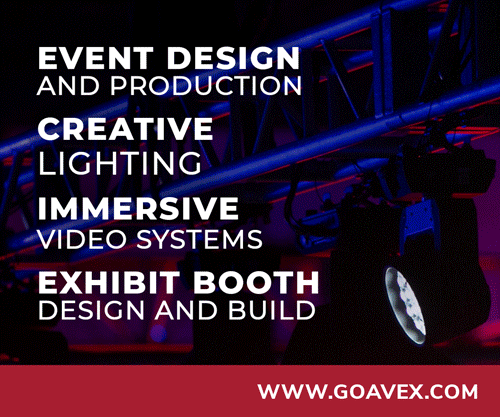
The imagery that the word “headhunter” invokes is quite colorful; a savage taking heads and keeping them as trophies. As a petite woman, I have had more than a few puzzled looks when people find out what I do for a living. For some reason, the image-evoking term doesn’t seem to coincide with my physical presence. The job does require tenacity, and I have plenty, but I haven’t resorted to actually taking trophies so far.
Back in the day before Internet and job boards, recruiters had rolodexes full of prized candidates. They were candidate collectors, hence the term head hunter. There are still a few of these “old school” stalwarts out there who need to step into reality.
Reality: Recruiting is placing highly skilled candidates with the companies who are looking for them, also known as matchmaking. Well-informed, successful recruiters know about the best jobs in the industry. They have their finger on the pulse of the market.
Why you should care: Knowing how the recruiting process should work will lower your frustration levels and increase your chances of achieving your career goals. The right recruiter can kick your job search into high gear.
What should you expect from recruiters?
A recruiter is like a coach or personal trainer who helps you prepare for the big game: your job search. While a personal trainer coaches and motivates you get to get in shape, a recruiter’s goal is to help you get in step with hiring trends, market yourself, and land a job that is perfect for you. In both cases, results depend on your effort level.
Expect honesty
- Recruiters should always be up front about what they do with your resume. Sending your resume to as many potential employers as possible without your knowledge is not a sound practice. You want to be prepared when potential employers reach out so you will make a good impression.
- Expect the name of the recruiter and the company they are hiring for if you have demonstrated your interest in exploring the opportunity. If the recruiter isn’t willing to share this info, hang up.
- Work with a recruiter you are comfortable with. If you don’t trust them, move on.
Expect professionalism
- Most recruiters are hard-working, honest professionals but as in any industry, there are some recruiters that aren’t. Good recruiters don’t sound like a used car salesmen.
- Choose a recruiter that specializes in your field.
- Established recruiters are well-networked, highly visible, and their expertise is in a variety of forums like websites, blogs, articles and active participation in industry associations.
- Transparency, as in honesty and integrity, not invisibility is what you want in a recruiter. If you encounter the “invisible recruiter,” the one who doesn’t have a voice in the industry, remember this: Recruiting is about who and what you know.
What’s your responsibility as a candidate?
Improve your odds of landing the job. Be organized, available and professional. Patience won’t hurt either.
Be Organized
- Have a list with the names and numbers of recruiters who you have been in contact with, and when and where they’ve sent your resume.
- Look at the company online, research it and know the job you are applying for.
- Know what you are looking for: location, salary, benefits, office culture, etc.
Be Available
Two of the biggest challenges candidates face, especially those who are working, is maintaining confidentiality and finding time to talk with recruiters.
- Provide an email address and phone number with voicemail just for your job search and return messages promptly.
- Set clear contact parameters for recruiters. Recruiters want to talk to you when you can speak freely, and you don’t want to be called at an awkward time.
Be Professional
- Respond to recruiters quickly and professionally.
- Tell your recruiter if you are working with multiple recruiters. Everyone looks silly if you are being presented to a company by more than one recruiter.
- Show initiative and follow up. Feedback helps the recruiter help you.
- Don’t burn bridges. When you’re in an industry long enough, it tends to be small world and word travels fast.
- When you’ve started the process of learning about a job and talking to a recruiter, don’t disappear.
- If you’re not interested or find another opportunity, let the recruiter know. It is okay, just be courteous.
Be patient
Patience is a virtue that is hard to come by when you need a job, but the current job market is flooded with job seekers. Recruiters are inundated and it may be difficult to touch base with every candidate. Follow up with updates about your search, new skills, training, etc. Your status reports are an important reminder that you are still on the market.
A recruiter’s job is to get you hired! Your success is your recruiter’s reward. Expect your best interests to be at heart. The proof will be in the pudding on this one. Having that kind of support in any job search climate is an enormous advantage.
Jaynie Ellison is the Director of Recruitment Services at ExhibitRecruiter, Inc. Established in 1998, ExhibitRecruiter has been the premier recruitment agency specializing in the exhibit and event industry for over a decade. ExhibitRecruiter has partnered with companies of all sizes throughout the United States and Canada that specialize in exhibits, museums, environments and events. ExhibitRecruiter focuses exclusively in the experiential marketing sector. Her complete bio is on LinkedIn at: http://www.linkedin.com/in/jaynieellison She can also be reached at jaynie@ExhibitRecruiter.com Her direct line is 1-800-491-5434. For more information, go to www.ExhibitRecruiter.com.
| Home |
| People on the Move |
| National News |
| International News |
| Opinions |
| Tradeshow Calendar |




























